This content is not a substitute for professional medical advice, diagnosis, or treatment. If you have any questions about dietary supplements, be sure to consult your doctor or other qualified health care provider.
One of our missions at Verywell is to provide you with comprehensive and unbiased information about products that can improve your health and well-being.
We strive to maintain transparency about why we recommend certain dietary supplements and provide you with easy-to-understand information to help you choose the products that best meet your needs.
To explain our approach to selecting nutritional supplements, we will cover the following:
- The benefits and risks of dietary supplements
- Which supplements we choose to feature on Verywell Fit (and which we skip) and why
- Product attributes that are important to us and the evidence supporting those attributes
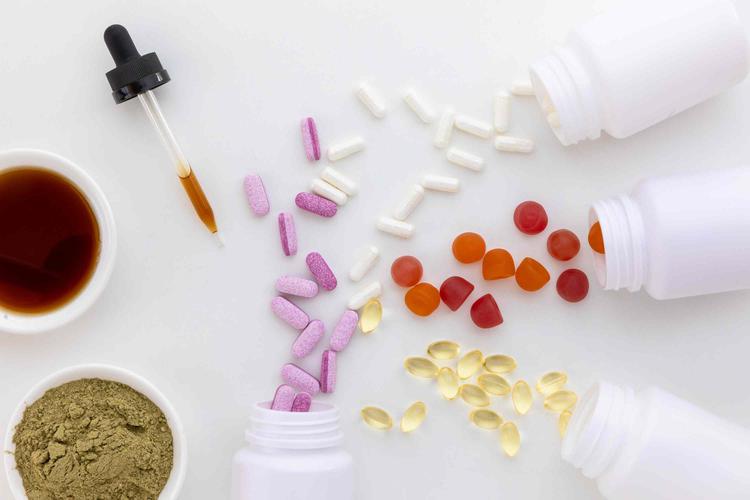
What are dietary supplements?
Dietary supplements are products intended to supplement the diet, including vitamins, minerals, herbs and botanicals, amino acids, and enzymes. Other popular dietary supplements include omega-3s, probiotics, and protein powders.
Supplement Facts Label
Products sold as dietary supplements are packaged with a "Supplement Facts" label that lists the ingredients, the amount per serving, and the recommended serving size. This label is typically found on the back of the outer packaging or the supplement container.
This information can help you understand what the key active ingredients in the supplement are, as well as other ingredients like flavorings, fillers, and binders. Use this label as a guide to understand what is in the supplement.
Legally, supplement labels are required to list the vitamins and minerals they contain and their amounts. If you look closely at the label, you may notice a section called "Other Ingredients," which typically includes fillers and excipients.
These ingredients often help optimize the manufacturing process or bind the supplement together. Not all fillers and excipients are harmful, but they are not always necessary in products. It’s best to take a close look to understand exactly what is in your supplement.
Our editors, writers, and fact-checkers use the Supplement Facts label, product packaging, and manufacturer data to provide you with clear information about the supplements we recommend on Verywell.
Benefits of Dietary Supplements
Supplements can:
- Improve overall health by preventing nutritional gaps
- Ensure adequate levels of diagnosed deficiencies
- Manage specific health conditions.
For example, calcium and vitamin D help keep bones strong, vitamin C can enhance immune function, and B vitamins can improve energy.
Dietary supplements may be particularly useful for those who cannot consume or absorb certain nutrients or choose not to eat certain foods.
For instance, individuals who have had surgery on the ileum (part of the small intestine) may not be able to effectively absorb vitamin B12 and may need to supplement with vitamin B12. Similarly, vegetarians or vegans who choose not to eat meat may also benefit from supplementing with iron and vitamin B12.
Risks of Dietary Supplements
Although dietary supplements can offer a variety of benefits, they can also pose potential risks due to a lack of product regulation and misuse.
Dietary supplements are not regulated in the U.S., meaning the FDA does not review their safety and effectiveness before they hit the market. Even if a supplement has been third-party tested, it does not mean the supplement is safe and effective for everyone.
Always talk to your healthcare provider to check if a supplement is right for your needs and health issues. There is a risk of overdose, nutritional imbalances due to misuse, and experiencing interactions.
Overdose
Taking more than the recommended amount of food or overdosing can be dangerous. While many people believe you "flush out" excess vitamins, the body still stores certain vitamins, including fat-soluble vitamins like vitamins K, A, D, and E.
Excessive vitamins or toxicity can cause more harm than good to the body. For example, too much iron can cause nausea, vomiting, and liver damage.
It is also important to note that many foods we consume are rich in vitamins and minerals, which contribute to our overall daily intake. For example:
- Breakfast cereals are often fortified with vitamins A, D, and B vitamins.
- Milk is typically rich in vitamins A and D.
- Protein bars and drinks are considered dietary supplements and contain a variety of nutrients.
If you regularly consume fortified foods, consider how these products meet your overall nutritional needs.
Imbalance
Supplements can fill and prevent nutritional gaps, but they can also cause imbalances. Nutrients work synergistically in the body, but an excess of certain nutrients can lead to imbalances of others.
For example, calcium and magnesium are antagonistic to each other, so more of one nutrient may increase your need for the other.
Interactions
Supplements may interact with medications or cause dangerous side effects. For example, vitamin K can interfere with a popular blood thinner, warfarin, reducing the drug's ability to prevent blood clots. Vitamin C may reduce the effectiveness of certain types of chemotherapy.
Supplements should not replace prescription medications recommended by your healthcare provider. Always discuss all supplements and medications you are taking or plan to take with your healthcare provider.
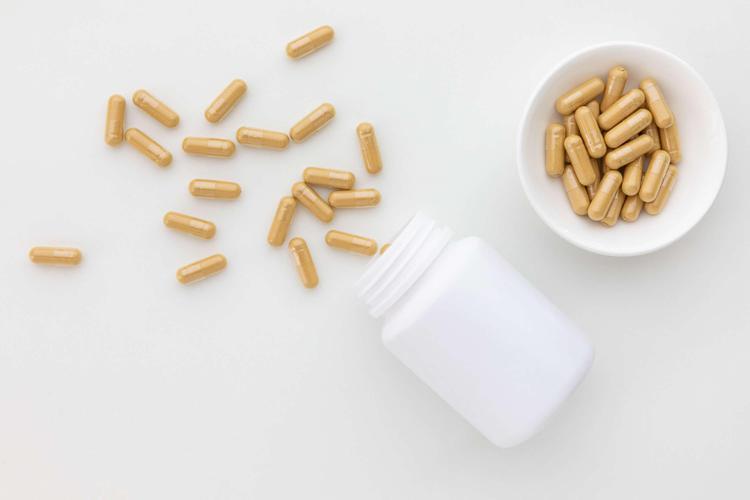
Other Considerations for Dietary Supplements
Nutritional needs vary by gender, age, weight, and many other factors. Therefore, most supplements are formulated and taken for specific age groups. Always talk to your healthcare provider to ensure you choose the right supplements and dosages for your needs. Many supplements have not been safety tested in pregnant women, children, and nursing mothers.
Be aware that "natural" does not always mean safe. Many people believe that because herbal supplements are made from plants and common natural substances, they are completely harmless. This is not true.
Herbal supplements can interfere with medications or have negative effects on the liver. Many multivitamins contain herbal ingredients, so it is essential to check the supplement ingredient label and carefully review the ingredient list to ensure each ingredient is suitable for you.
What Supplements Does Verywell Recommend?
Supplements can be a tricky area, so we painstakingly sift through various products and brands to provide you with a range of high-quality options based on your values, budget, and preferences.
Before we get into selecting specific products, we first identify what we ethically support and what we do not.
We support the following supplements:
- Evidence-based and rooted in science
- Clinically tested and approved for human use
For these reasons, we choose to support multivitamin and mineral supplements, individual vitamin and mineral supplements, omega-3s, and probiotics.
We cautiously recommend herbal supplements and pay attention to the evidence behind each herbal ingredient. Other nutritional supplements, such as protein powders and collagen powders, meet our standards.
In each of the above product categories, we are very discerning about the brands and products we support based on various factors (see the attributes described below), but most importantly, the ingredients used.
As more research comes to light and new products enter the market, this list will continue to evolve. Our team will continually question the safety and effectiveness of supplements and modify our recommendations accordingly.
We do not support:
- Supplements with claims not supported by clinical research
- Supplements with potential dangers (beyond typical risks associated with nutritional supplements)
- Weight loss supplements, including diet pills
- Sports and exercise products that may be harmful to athletes
It is important to note that many potentially dangerous and lower-quality supplements claim to be supported by research. Any company can strategically conduct research to back its claims, so it is crucial to analyze the study design, size, and conflict of interest statements to determine if the research is valid.
It is best to conduct double-blind, placebo-controlled studies with large sample sizes, no conflicts of interest, and not funded or paid for by any individuals with financial interests.
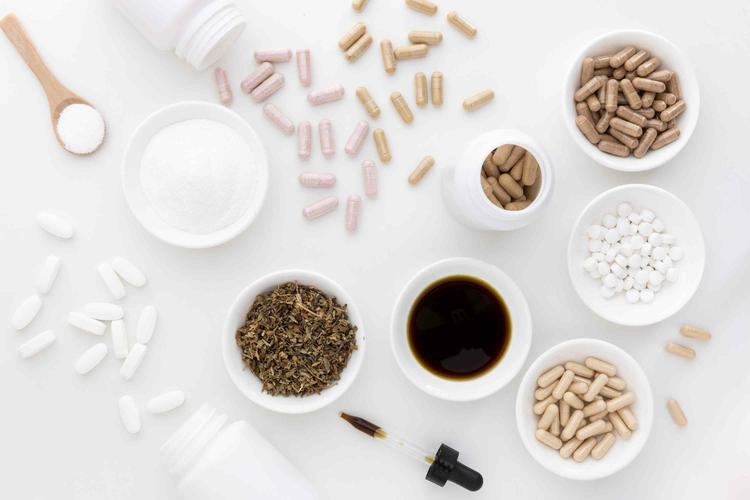
How Do We Choose Recommended Supplements?
Have you ever walked down the supplement aisle, staring blankly at the shelves, feeling overwhelmed by the selection of simple multivitamin tablets or vitamin C capsules? We certainly have. We aim to do the research for you so you can easily choose the best approach for you.
Our experienced editorial team (including staff nutritionists) selects the topics covered by Verywell. This team collaborates with expert writers to choose the best products in each category, such as vitamin D, elderberry, and vitamin C. We aim to provide you with evidence-based simple information to help you make informed purchasing decisions.
Product Attributes We Value
At Verywell, we value certain attributes associated with the highest quality products. Below are these attributes, along with explanations of why we value each attribute and the evidence supporting that attribute.
It is important to note that the supplements we choose do not need to have all of these attributes, but we find these values important when deciding among the various products on the market.
- Non-GMO
- Organic
- Allergen-free
- Free from artificial colors, flavors, and preservatives
- Free from (most) artificial sweeteners
- Third-party tested and certified
Non-GMO
Whenever possible, we choose products that use non-GMO ingredients. While there is a variety of evidence regarding whether GMO products are safe or harmful, we generally prefer to recommend products that are closest to their natural state and non-GMO. Although the evidence is inconclusive, choosing non-GMO products may be better for your health and the environment.
We also look for products that carry the Non-GMO Project Verified certification on their packaging, which means the product meets the following requirements: the strict standards of the Non-GMO Project.
When considering GMO crops like soy and corn, another concern is glyphosate, a component in herbicides (like Roundup) used to control weeds. This herbicide has been detected in various foods, including fruits, vegetables, and grains. Glyphosate is legal in the U.S., but some governments around the world have banned its use.
Therefore, limiting unnecessary exposure to glyphosate may be beneficial. Non-GMO does not mean glyphosate-free; however, it may limit the amount you are exposed to. If you are concerned about glyphosate, you can look for a certificate of glyphosate residue-free.
Organic
While some studies suggest that small amounts of chemical residues from non-organic foods are harmless to your health, it is generally considered safer to avoid pesticides, fertilizers, and chemicals by purchasing organic products, including supplements. Therefore, we recommend choosing supplements made from organic whole food ingredients whenever possible.
Organic may seem like a more expensive version of the same item, but the term is strictly regulated. According to the USDA, "Organic meat, poultry, eggs, and dairy come from animals that are not given antibiotics or growth hormones. Organic food production does not allow the use of most conventional pesticides, synthetic fertilizers, or sewage sludge, bioengineering, or ionizing radiation."
Note that the term "organic" can be used in various ways on product labels. Products labeled "organic" must contain at least 95% organic ingredients, excluding added water and salt, and must not contain sulfites as preservatives. The remaining 5% of ingredients may be non-organic.
Products with labels claiming "made with organic ingredients" must contain at least 70% organic ingredients, excluding water and salt. These products may also not use sulfites.
Many organic supplements are made with whole foods rather than synthetic ingredients (though organic is not synonymous with "whole food"). It is generally best to choose whole food products, as they are made from concentrated and extracted ingredients from real foods, while synthetic nutrients are made from artificial components. Some evidence suggests that supplements derived from whole food ingredients are absorbed more efficiently than synthetic nutrients.
Be aware that some supplements are labeled "organic," while others are labeled "USDA organic." These terms are not the same. "USDA organic" certification ensures that the ingredients are grown and processed according to federal guidelines. Some of these guidelines require that the soil used to grow the crops has not had synthetic fertilizers and pesticides for three years prior to harvest.
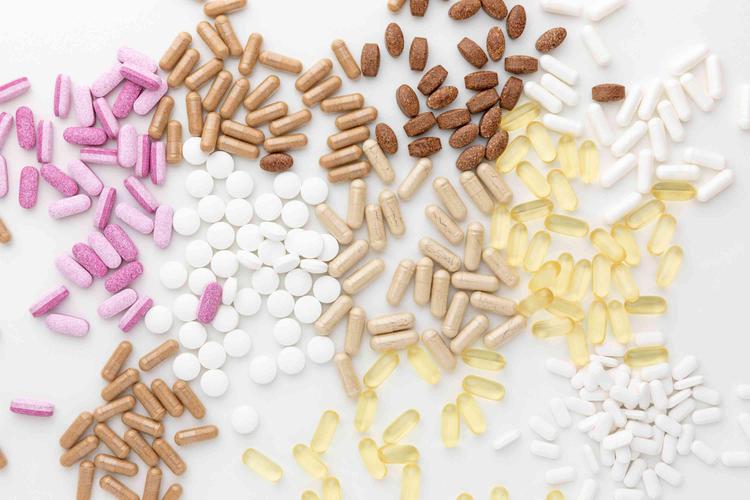
Allergen-free
Supplements may contain one or more of the top eight allergens (milk, eggs, fish, shellfish, nuts, peanuts, wheat, soy). These ingredients may be sources of certain nutrients or fillers. Because these allergens can be dangerous for people with food allergies, we recommend supplements that are free from common allergens.
Many supplement companies produce multiple products in one facility, which can lead to cross-contamination with certain allergens. If you are concerned about allergens, it is best to contact the supplement manufacturer with any questions or choose certified allergen-free products.
Free from artificial colors, flavors, and preservatives
We recommend dietary supplements that do not contain artificial colors, flavors, and preservatives.
Artificial colors can make supplements look more appealing and uniform in color, but artificial food colors and dyes can be harmful, especially for children.
Generally, artificial colors are not essential ingredients in supplements, so we recommend supplements that do not use artificial colors or dyes. As an alternative, many companies use natural colors and flavorings derived from fruits and vegetables.
Flavoring can help improve the taste of unpalatable supplements. For example, adding natural lemon flavoring to omega-3 capsules makes them less fishy, while natural fruit flavoring makes gummy vitamins more appealing to both children and adults. Natural flavors and artificial flavors may taste the same. However, they are made differently.
- Natural flavors are processed in a lab but come from natural sources like fruits, juices, or spices.
- Artificial flavors are synthesized in a lab, are usually cheaper, and may have potential dangers.
Whenever possible, we recommend products that use natural ingredients, including flavorings.
Preservatives help extend the shelf life of supplements to prevent them from breaking down too soon. They also help keep mold, fungi, yeast, and bacteria at bay. Natural preservatives (like vitamins A, C, and E and various amino acids) are a better choice than potentially harmful artificial preservatives.
It is important to note that some supplements (like certain probiotics) require refrigeration. Be sure to read the supplement label for storage instructions.
Most non-refrigerated supplements are best kept tightly sealed in their original containers in a cool, dry place.
Free from (most) artificial sweeteners
Many artificial sweeteners are considered GRAS (or generally recognized as safe) by the FDA, but we prefer to avoid most artificial sweeteners.
The FDA has approved saccharin, aspartame, acesulfame potassium, and a few other high-intensity sweeteners, but we recommend avoiding these products due to potential health concerns. Some artificial sweeteners may disrupt the body's natural ability to process sugar, leading to increased cravings for sugar and carbohydrates, which can result in binge eating, weight gain, and hormonal disruption.
Based on current evidence, we recommend products sweetened with stevia and monk fruit (luo han guo). These natural sweeteners are both considered GRAS but are less sweet than other high-intensity sweeteners.
Note that these products are about 200 times sweeter than table sugar, so they should be used in moderation. We will continue to monitor the evidence regarding the safety of sweeteners and will modify our recommendations accordingly if necessary.
Third-party testing and certification
Because nutritional supplements are not regulated or widely tested in the U.S., choosing products that have been third-party tested is a good way to ensure you are selecting safe and effective products. Third-party testing is a control process in which independent laboratories evaluate whether a product meets specific standards.
Popular third-party organizations include NSF, USP, LabDoor, and ConsumerLab. Whenever possible, we choose products that have been third-party tested and certified. That said, if a supplement has not been third-party tested or certified, it does not mean it is not a good product.
Testing only helps avoid uncertainty about whether a product is safe and effective.
The FDA does oversee health claims related to dietary supplements (such as "may reduce the risk of heart disease") and nutritional content (such as "low in sodium") on label statements.
However, some supplements may carry labels with designs or artwork not supported by evidence-based science or third-party testing companies.We will also pay attention to third-party certifications based on third-party testing conducted. Companies like NSF or USP provide seals of approval, verification marks, or certifications to assure consumers that products are safe and effective.
While drugs sold in the U.S. must be approved by the FDA and must meet USP standards, dietary supplements do not need to be approved before they hit the market. USP standards are voluntary unless new ingredients are involved.
For supplements specifically related to athletic performance, we look for smart choices, informed sport, or NSF International Sport Certified certifications to ensure the products we recommend are safe and clean.
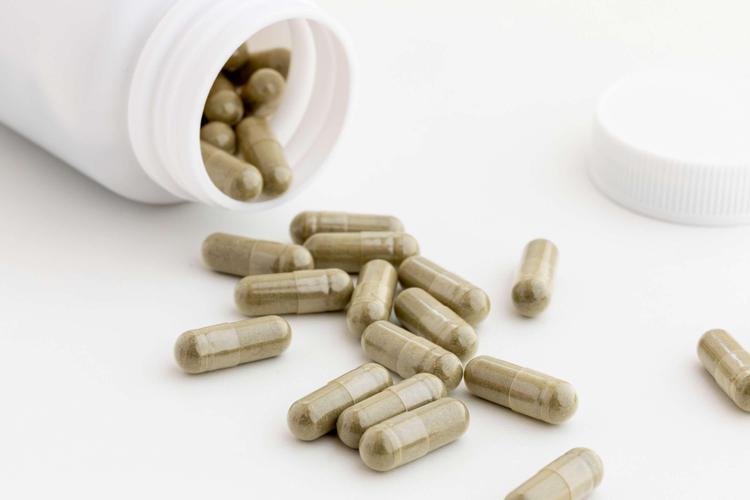
Other Considerations When Choosing Supplements
When selecting which supplements to recommend, we are mindful of the quality-focused attributes listed above and consider personal preferences such as form, price, and availability. We also care about the manufacturing conditions of the supplements.
- Form: Supplements come in various forms, including tablets, capsules, liquids, powders, lozenges, sprays, and gummies. Our goal is to provide the highest quality supplements in a variety of forms to meet your preferences, as we understand some people prefer gummies over capsules and vice versa.
- Price: Price does not always reflect quality. Expensive supplements do not guarantee a better product. It is also wise to be skeptical of very cheap supplements. We aim to provide the highest quality nutritional supplements at various price points to accommodate most budgets. Some supplements are inherently more expensive than others, and the price largely depends on the ingredients.
- Availability: We choose over-the-counter nutritional supplements that are widely available. While some supplements are only available by prescription, order, or mail, we aim to provide supplements that are available at local or online retailers for convenience.
- Quality Control: While there is a lack of quality control over supplement ingredients, safety, and effectiveness, the FDA does have regulations regarding the manufacturing processes of supplements. Known as GMP (Good Manufacturing Practices) or cGMP (current Good Manufacturing Practices), these regulations set requirements for supplement companies to ensure that supplements are made in FDA-registered safe, clean laboratories. We recommend products made in GMP facilities.
Eliza Savage, MS, RD, CDN
Senior Health Business Editor
Profile
Read more
Eliza Savage, MS, RD is the Senior Health Business Editor at Verywell, a registered dietitian, and a published author.
<Usage>

RD Rachel Berman is the General Manager of Verywell, a registered dietitian, published author, and a national nutrition spokesperson.
